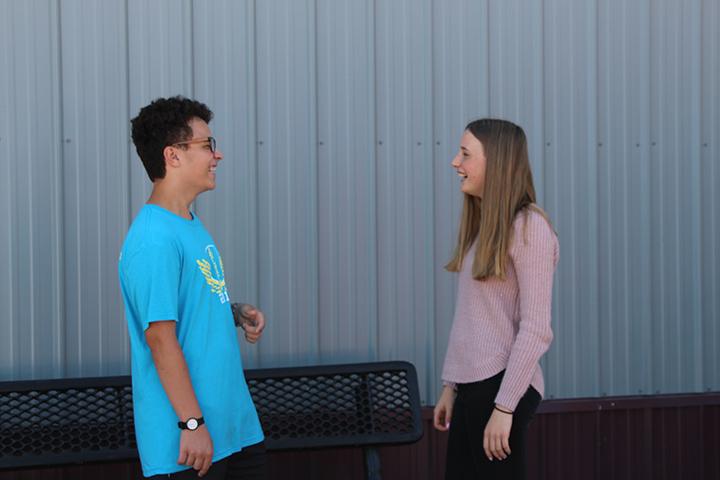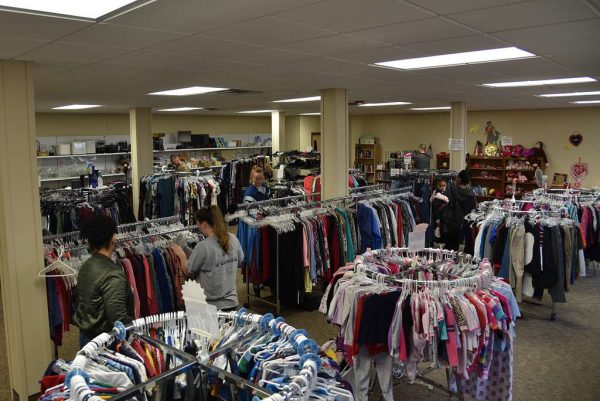Exchange students call Archer home
Foreign exchange students Jorge Moral Vidal and Fjonna Ramin converse outside of the portable buildings.
They come from halfway around the world simply for education. They leave their families behind, saying good-bye to those they love, to come all the way to America for a year.
Stepping onto American soil, they face tasks completely different from what they’re used to. They have to get used to the way Americans do things, as well as speak.
They’ve even had to adjust to a whole new way to go to school and the way American schools work.
“There’s no football in Spain,” junior Jorge Moral Vidal said. “We actually don’t have any school teams at all. If you want to play a sport, it’s usually organized by a parent.”
They also have a different way of attending school.
“There’s also only six periods a day, but the schedule changes everyday,” Vidal said. “We can’t choose the classes we want either until we get into tenth grade. We can choose the small stuff, like a language class, but nothing major such as a science or math class. We also finish school at 2:15, giving us enough time to get home to eat lunch at 3:00.”
In Germany, things are similar to Spain, and still different from America.
“We don’t have the same schedule every single day,” junior Fjonna Ramin said. “We don’t have multiple classrooms that we go to between each class either. The teachers come to your room.”
The schools in Germany are also much bigger than schools here.
“Our school has about 2,000 students,” Ramin said. “Elementary grades run from one to four while high school goes from five to 12, and school runs from eight to two, and we don’t have a break for the summer. We only get a six week break in the spring.”
They also celebrate different holidays and traditions than Americans do.
“In Spain we don’t have a prom or a homecoming,” Vidal said. “We actually have one big party at the end of the year instead.”
As well as having some differences, there are also some similarities, celebrating a holiday close to Christmas, as well as also celebrating Christmas.
“We also celebrate a holiday called Day of the Magic Kings, celebrated on Jan. 6,” Vidal said. “It’s kind of like Christmas, because we get presents, but only from one side of the family. On Christmas, the mother’s side of the family might give you presents and then on the Day of the Magic Kings, the father’s side of the family gives us presents.”
In Germany, every Sunday is a tradition for them.
“There’s always a big soccer game that everyone goes to,” Ramin said.
There are also more traditional holidays that the Germans take part in.
“We celebrate Oktoberfest, which is basically a huge party where everyone wears the traditional German dresses and trousers,” Ramin said.
In Germany, they’re allowed to drink at age 16, but they have to wait until they turn 18 to drive.
“It makes it safer so that people aren’t drinking and driving until they become a bit more responsible,” Ramin said.
The foreign exchange students have also had to adjust to living in a town with only 2,000 people.
“I live in a town with 15,000 people,” Vidal said. “The village is kind of small but we have small shops everywhere so people don’t have to leave and visit other towns to get what they need.”
As well as celebrating different holidays and having different school systems, the houses are also a little different.
“The houses are also all stacked up on each other because of how many people live in the village,” Vidal said.
In Germany, Ramin said there are only 800 people, but the houses are really close together, and most are elevated with two stories.





